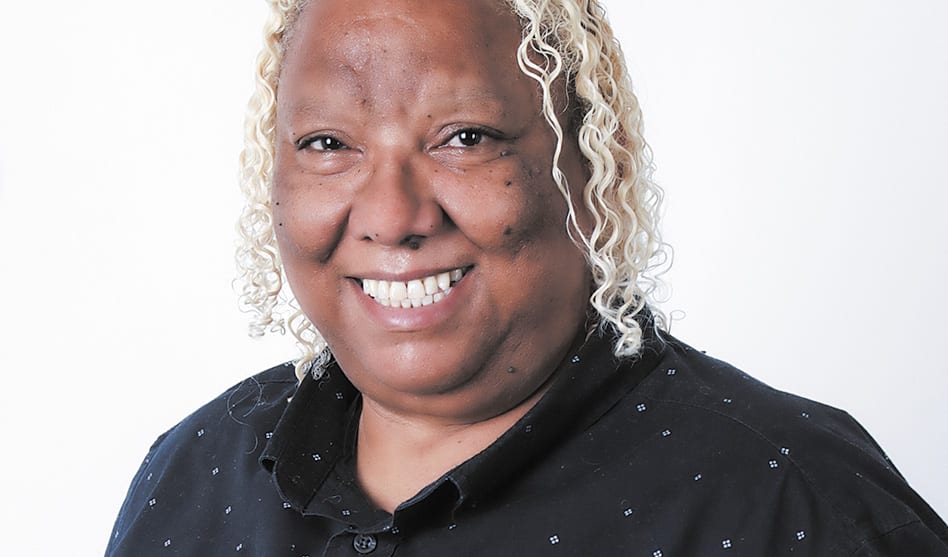Betty Neal

Courtesy of The Dallas Way
or generations, African-American LGBTQ individuals felt left out of Gay Pride events, and in many instances, they were not welcome. Racial tensions were high in Dallas, even within the last 30 years — between the majority and minority groups, as well as within those groups.
Just because someone identifies as LGBTQ, that does not automatically guarantee that that individual isn’t racist. In fact, implicit bias exists within everyone, even those who have been discriminated against.
Progress has been made, but there is a long way to go, and even as minority LGBTQ groups have begun to be integrated into primarily white organizations and events, like the Pride festival and parade, many still feel the need for a group that is exclusively for the Black LGBTQ community.
What is Black Pride, or Black Prides? According to various authorities, Black Pride is the celebration of the African-American LGBTQ community, but more than that, it is a time of cultural celebrations that affirm and empower a community of invisible people in a climate of hostility (Jasmine Cannick, NPR, June 2005).
“Black Prides allow people of color the chance to celebrate our culture and orientation without explanation,” says LaToya Hankins, of North Carolina’s Shades of Pride. “We can feel free to attend an hour workshop, take in a drag gospel show, or hang out in the park basking in the company of our fellow black gay/queer/same-gender-loving folks, without having to shape our existence to fit someone else’s comfort level.”
Black Pride events “strengthen our collective power by providing a culturally-specific celebration for communities that live at the intersections of racism, homophobia, transphobia, and/or sexism,” Hankins said.
“The annual Black Gay Pride Weekend is designed to promote an atmosphere of positive interaction and celebrate the intersectionality of our lesbian, gay, bi, trans and Queer (LGBTQ) identity and our black identity as individuals who create a collective community.” (Les Fabian Braithwaite, Why Black Pride Matters, April 28, 2016, The Advocate)
According to Earl Fowlkes Jr., president and CEO of the Center for Black Equity, there are more than 25 Black Prides in the United States, with the largest occurring in Los Angeles, Atlanta and Washington, D.C.
Dallas has its own Black Pride, now known as Dallas Southern Pride, which welcomed more than 15,000 participants last year to its various events, and recently welcomed an even bigger crowd this year. Now known as Southern Black Pride, the organization just hosted the 21st annual Black Pride Weekend Sept. 27 – Oct. 1, the same weekend as the Grambling State Prairie View A&M football game at the Cotton Bowl. The celebration included four days of festivities, including celebrities, workshops, a beauty pageant and health services.
While historically Prides have been predominately gay male events, Dallas Southern Pride continues to build alliances and partnerships that are inclusive of both women and transgender organizations to ensure the needs of all communities are addressed with workshops on relationships, health, wellness and financial planning.
Dallas Southern Pride maintains its place in history as the only local Black Pride organization in this area that provides signature events aimed at the black LGBTQ community. (From the Dallas Southern Pride website)
So, how did Black Pride start in Dallas? According to Betty Neal, an activist for the entire LGBTQ community, Black Pride started with conversations about the need for a place, an organization, an event, that celebrated black LGBTQ Pride, apart from and unique to the Dallas Pride festivals.
Around 1996, The Grambling State vs. Prairie View A&M football game in the Cotton Bowl provided the catalyst for the black gay community to gather under one roof. Flyers were sent to both colleges to be sure gay students had the opportunity to join in the festive event.
There was no organization or money, just the will to show pride within the community and to honor the black LGBTQ residents of Dallas. Entertainment became the common denominator for accomplishing this goal.
Strength of unity, family and a commonality were the seeds of an organization that began to take root. Bar owners Joe Elliott and Howard Okon provided the venues where the Black Pride events could be held, and the biggest names in black LGBTQ entertainment throughout the country were booked, drawing in large and diverse crowds.
As with any organization, the beginnings were painful and full of turmoil, infighting and debate, leading to a loss of direction and mission. But according to Neal, Roy Murray took the event in a new direction, with perseverance, determination and hard work. The point was to be inclusive yet apart from the Dallas LGBTQ Pride festivities.
“Black Pride is more important than ever because the collective voice of queer people of color has never been clearer or more urgent. After being silenced and ignored, these voices deserve to be heard, if only to recount how one pulls off the hat trick of being black, gay and proud in America — say it loud.” (Why Black Pride Matters The Advocate March 28, 2016)
Meanwhile Betty Neal, who has spent 35 years working in nightclubs, is an original board member of the Alan Ross Freedom Parade as well as the original Dallas Southern Pride board. She continues working for the entire LGBTQ community and has been since she was born.
“I’ve never been in the closet; I’m designed this way,” she declared.
She continues her activism and believes the highest compliment that can be paid to her is when someone says, “She’s my friend.” Betty has many friends and remains a cherished member of the Dallas LGBTQ community – all colors.
















